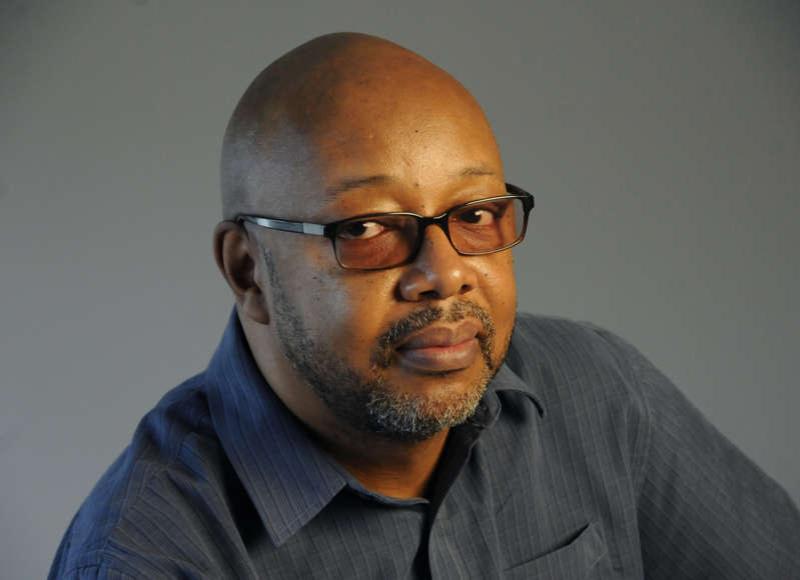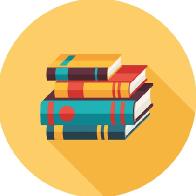Leonard Pitts Jr.: It’s easy to see why they consider books dangerous
By: Leonard Pitts Jr.,

Leonard Pitts Jr.: It’s easy to see why they consider books dangerous …
Here’s what happened when Ruby Bridges went to school in 1960.

© RUSSELL BRONSON/DALLAS MORNING NEWS Ruby Bridges Hall signs and autograph for Carla Johnson and her sister Camille. Bridges Hall became famous when she was 6 years old and marched into a New Orleans elementary school to integrate the school. Her actions inspired writings by John Steinbeck and a Norman Rockwell painting.
Four federal marshals escorted her. She walked through a mob of outraged white people. They called her names. They threatened to poison her. And to lynch her. They held up a small casket with a black doll inside. One Southern belle explained to a reporter why she and other New Orleanians felt it necessary to come out first thing in the morning and scream at a 6-year-old girl. “We’re white people,” she shrieked. “We don’t want to go to school with n*****s!”
“Ruby Bridges Goes to School,” a 2003 memoir for second-graders.
“Some people did not want a black child to go to the white school. They stood near the school. They yelled at me to go away.”
It is hard to imagine a more anodyne reading of a more monstrous episode. Yet it was still not anodyne enough for a group of Tennessee parents who filed a complaint over the summer. “Ruby Bridges Goes to School” was among four books cited by the Williamson County branch of a group called Moms For Liberty for supposedly “explicit and implicit anti-American, anti-white” bias.
Something similar happened in Pennsylvania where, last year, the Central York School District banned a list of books, most of them by or about people of color, including “I Am Rosa Parks,” a primer on the civil-rights icon by Brad Meltzer. Before the board retreated last week in the face of a backlash from parents, students and teachers, its president, Jane Johnson, claimed the ban was needed because some parents “believe that rather than uniting on diversity, certain resources polarize and divide on diversity and are based on disputed theories and facts.”

© Provided by Tribune Content Agency Leonard Pitts.
Because, yeah, censorship is always for our own good, always represents someone’s principled attempt to protect the rest of us, decide for the rest of us. Books are such dangerous things.
That’s something worth remembering here in Banned Books Week, a yearly observation sponsored by the American Library Association to call attention to that crude human impulse that, with apologies to the Tennessee moms, stands against liberty of knowledge and ideas. There is, after all, a reason one of the first acts of the Nazi regime was a massive book burning — 25,000 texts consigned to the fire — and it wasn’t to celebrate freedom. The spirit of that atrocity lives on in Tennessee. And in Pennsylvania. And in America.
Indeed, the ALA’s list of banned and challenged books reads like a roadmap to the backroads of our national psyche, the prudishness, small-mindedness, fear, hypocrisy, ignorance and intolerance. It includes: “Diary of a Young Girl” by Anne Frank, “The Hate U Give” by Angie Thomas, “Crippled America” by Donald Trump, “My Two Moms” by Claudia Harrington, “Of Mice and Men” by John Steinbeck, “Captain Underpants and the Preposterous Plight of the Purple Potty People” by Dav Pilkey. And the fight over “I Am Rosa Parks” and “Ruby Bridges Goes to School” reminds us that book banning is also an important front in white conservatives’ ongoing war against African-American history.
Those who ban and burn books seek to ban and burn the courage it takes to grapple with that which might leave you challenged, unsettled or changed. They fight for ignorance. So, it’s easy to see why they consider books dangerous.
If you’re not careful with them, you just might learn something.
(Leonard Pitts Jr. is a columnist for the Miami Herald, 3511 NW 91st Ave., Miami, Fla., 33172. Readers may contact him via e-mail at lpitts@miamiherald.com .)




One of the first things the Nazis did in Germany was burn books. In America, the censoring for the purpose of protecting the power of one race over another is just as scary.
Some think it's anti-American to actually tell our children of the more troubling aspects of our history. They don't want education; they want propaganda.
Yeah, I guess there are a lot of people who don't want their kids to have any doubts about "American Exceptionalism".
You have the wrong target. It's the American left that wants censorship and it's the left that wants (as we heard right here) reparations & retribution. It's not just censorship and indoctrination btw. Since a Republic would not consent to its own subversion and dissolution, the left must also resort to other means to overthrow it, including violence. Let us never forget what they did in 2020.
That's what's "scary" Buzz.
Or what they did on January 6th....lots to be proud of.
Jane Fonda might say another gift to the left. Ya, Buzz, the left loves Jan 6th - the day an unarmed woman was gunned down.
Vic, is the book "Ruby Bridges Goes To School" critical race theory?
I didn't think this was going to be a controversial topic but I see that it is and since I'm going to sleep now (it's almost 10 p.m.) and will not be available to moderate, I'm going to lock comments and will unlock in about 9 or 10 hours from now.
Unlocked for civil comments.